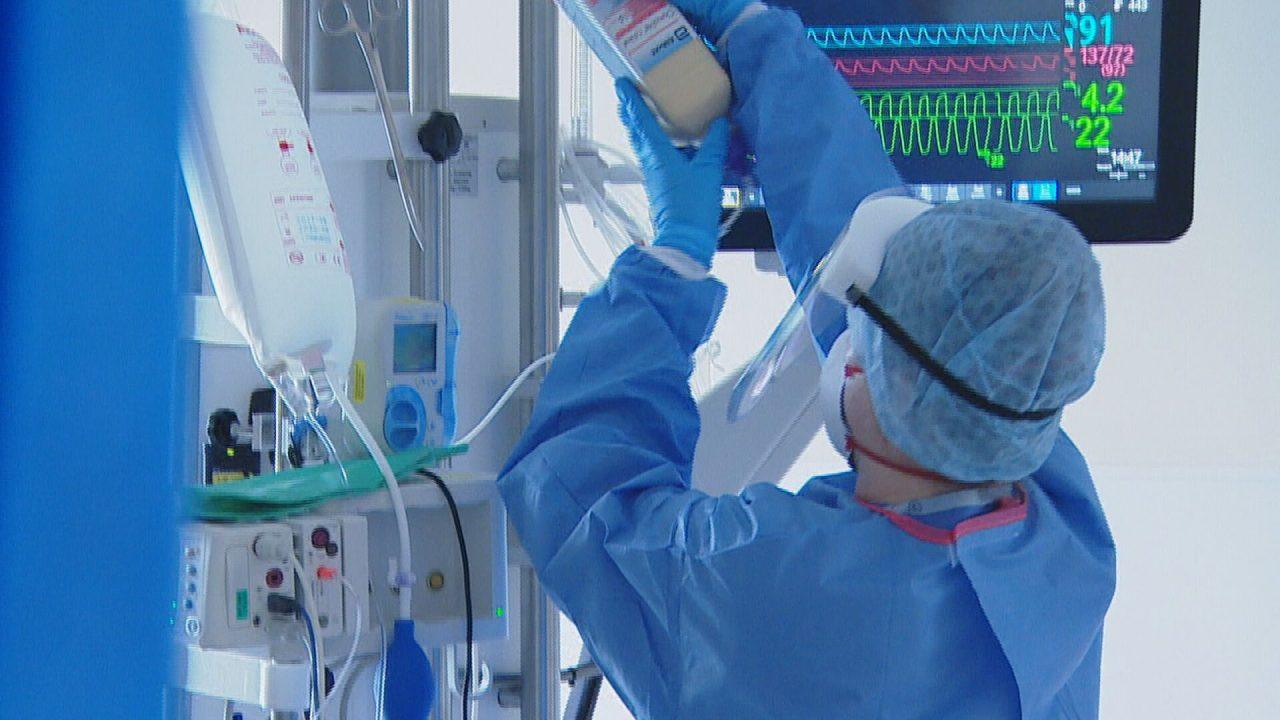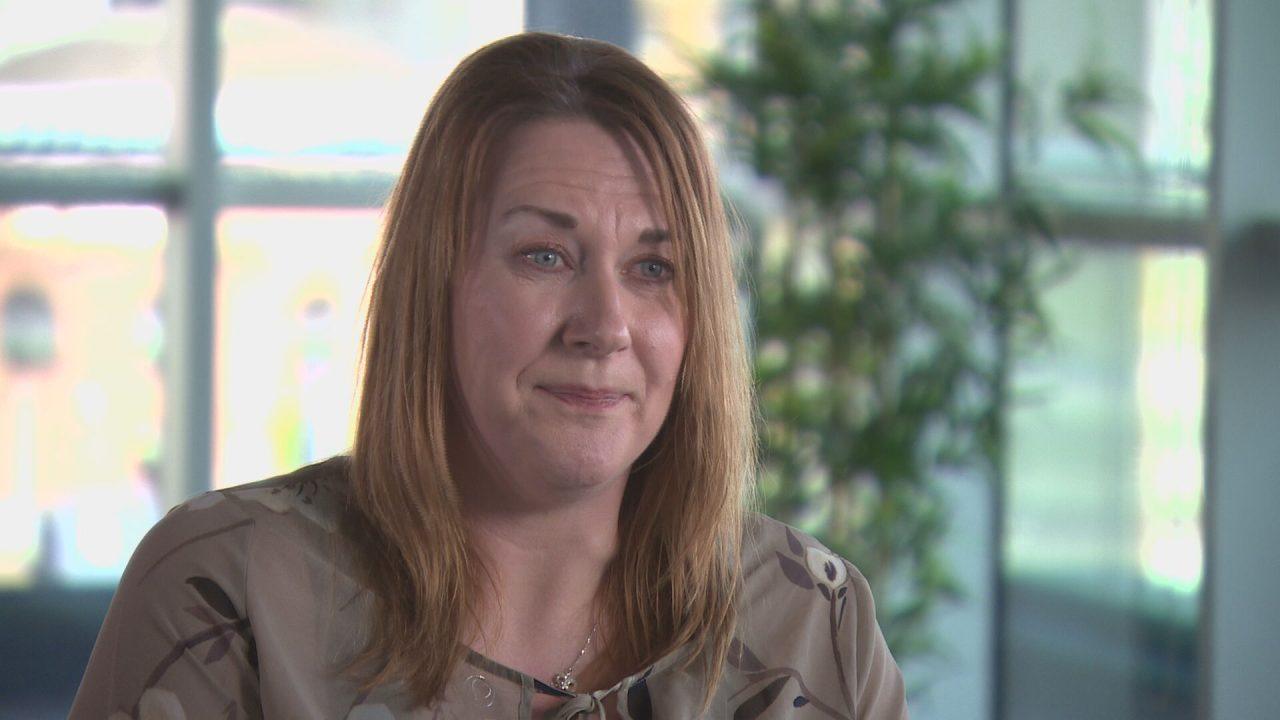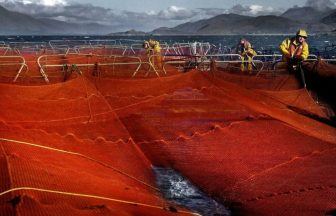An NHS nurse has opened up about the ‘heartbreak and hell’ of working in intensive care during Covid as the health service is gripped by a staffing crisis.
A new study on the impact of the pandemic on intensive care units (ICU) found nearly three-quarters of critical care nurses experienced psychological distress, with half meeting the threshold for burnout and a third reporting clinically concerning PTSD symptoms.
Teresa Scott, who has worked in the health service for over 20 years, said the frontline during Covid “felt like a war.”
Mrs Scott, 45, told STV News: “Most of the shifts in the first wave were extremely difficult.
“The patients we were seeing were the sickest we’ve ever seen. Often in intensive care, you have the sickest patients but then we had a large number of very, very sick patients all together.
“We were quite frightened because it was a new illness and we’d seen lots of television footage of what was happening in London. We’d heard of nurses dying.
“We didn’t know what would happen to us. We were all scared in case we were going to catch it and bring it home to our families and many became paranoid about cleanliness.”
She recalled the harrowing scenes she witnessed in the critical care wards, with patients separated from their families in their final hours.
“Many people died and they didn’t have their loved ones there and that was really difficult for the staff,” she added.
“I think that was probably one of the hardest things we all dealt with because nobody should really die alone without their loved ones.

“I often think of the relatives and how they coped in that difficult time because it must have been really difficult for them.”
The study, led by Dundee and Napier University National Institute for Health and Care Research, interviewed critical care nurses across Scotland, Wales and England about the impact of Covid on work-related stress between January 2021 and March 2022.
Over a quarter of nurses surveyed said they plan to leave their role in the next year.
Research found high demand and reduced resources has had an impact on staff wellbeing, patients’ safety and quality of care.
Nurses described their worst shifts as “walking into hell”, with words including “horrific,” “terrifying,” “unsafe” and “miserable”.
Mrs Scott said she was off sick for three weeks in November 2022 with burnout and “couldn’t stop crying” for three weeks.
She believes it’s a picture replicated across the workforce as she notices more and more of her colleagues suffering similar symptoms.
“I didn’t know what was happening to me. had never ever experienced anything like that before.
“I have worked in critical care for 20 years and you have a habit of boxing up traumatic events but when traumatic events happen so frequently, it is a lot of boxes to stack and in time, these have got to open.”
“There has been a massive layer of trauma that’s been embedded into all of this cohort of nurses.

“We’ve got to remember every aspect of the NHS was under a great deal of pressure and still is at the moment.”
Dundee researcher Dr Janice Rattray, a former ICU nurse who led the study, said: “The results are concerning as burnout is contagious. The NHS must prioritise the wellbeing of critical care staff as some of the accounts were quite harrowing.
“Nurses are now facing different challenges because society wants the NHS to deliver in the way always delivered before so the pressure’s on to deliver a normal service.
“These issues, in particular symptoms of PTSD, don’t easily go away so therefore I think the consequences are still there.”
Professor Diane Dixon, a health psychologist from Edinburgh Napier University who co-led the study, said the health service must focus on how it supports staff impacted by the pandemic.
She said: “Nurses used war-like language, comparing their workplace to a warzone or a battlefield.
“We have to remember that they were having to go back into that environment every single shift, day after day, week after week, month after month.
“The consequences of that are still with nurses and for some of them, it’s catching up with them.
“You’re so focused on getting the job done, when you finally have time to pause and reflect back, there is like a secondary tremor from an earthquake which arrives later, often when people don’t expect it.”
Colin Poolman, director at RCN Scotland, said the effects of the pandemic on critical care and the long-term wellbeing of nursing staff “cannot be underestimated”.

He said: “This research confirms what our members are telling us. They are under pressure, under resourced and burnt out.
“That a third of critical care nurses are reporting probable PTSD is extremely worrying and should be a wake up call for NHS boards and Scottish Government.
“Across our NHS and social care services, staff shortages and the unrelenting demands of the past three years are impacting on the safety and quality of care and on the health and wellbeing of nursing staff.
“The new cabinet secretary needs to take urgent action to stop more experienced nursing staff leaving the profession and to attract the workforce of the future.
“The Ministerial Nursing and Midwifery Taskforce provides an opportunity for nursing staff to inform the solutions.
“It must deliver funded, timely and meaningful actions to retain staff, to address the unsustainable level of vacancies, to expand routes into nursing and ultimately to grow Scotland’s nursing workforce to ensure the profession can meet the health and care needs of the people of Scotland today and in the future.”
A Scottish Government spokesperson said: “We are immensely grateful for the incredible efforts of all of our NHS and social care staff over the course of the pandemic. Our health care system continues to be under substantial pressure and we are working with health boards to provide long-term sustainable support.
“Our commitment to drive a supportive and enabling culture for our health care staff will be set out in the Improving Wellbeing and Workforce Cultures Strategy which will be launch this year. The nursing and midwifery taskforce, which met for the first time last week, will also look to explore and develop proposals on a range of initiatives, including staff wellbeing.”
Follow STV News on WhatsApp
Scan the QR code on your mobile device for all the latest news from around the country




























